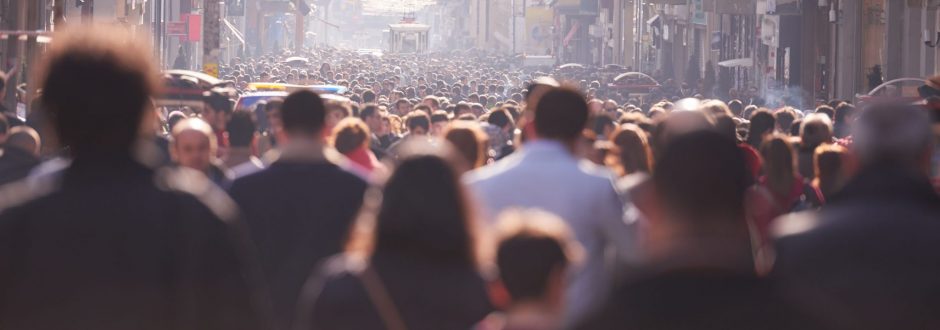The outbreak of the coronavirus reminds us how fragile and interdependent our societies are, and how quickly the ‘better angels of our nature’ can take flight, writes Evan Ellis.
The city of Sydney was born out of a plague. In 1789, 15 months after Europeans first arrived, a major smallpox epidemic broke out.
While British colonists had resistance to the disease, the local Gadigal people did not. Up to 70 per cent are believed to have died.
The diaries and letters of colonists give us a glimpse into the catastrophe, but don’t capture the full existential dread of the epidemic. How could they?
The smallpox epidemic was like the Biblical plagues of Egypt, targeting one group of people but studiously sparing another. The Europeans were on the side-lines of a catastrophe, but somehow still a world away.
Nearly 230 years later, Sydney is again filled with talk of disease, although this time it’s a novel coronavirus dubbed COVID-19, which was first reported from Wuhan in Hubei province, China, in December last year.
The new name is important. Director-General of the World Health Organization Dr Tedros Adhanom Ghebreyesus said the name was chosen because it “did not refer to a geographical location, an animal, an individual or group of people, and is also pronounceable and related to the disease”.
At the time of writing, Australia has 15 confirmed cases of COVID-19, with five people now fully recovered. However, the virus seems to be everywhere, according to media reports online, in print, on the radio and TV.
There are also the more subtle reminders in the city: the absence of holy water at Church, the hand sanitisers hastily installed at workplaces, and the seemingly quieter commutes and food courts.
While good media coverage is a necessity (although not always the rule) and precautions are important, the past few months have reminded us how fragile and interdependent our societies are, and how quickly the “better angels of our nature” can take flight.
As public awareness of the disease has grown, so have the reports of abuse and vilification directed at East Asians – in Australia and throughout the world.
Speaking at a press conference in Canberra this week, Australia’s Chief Medical Officer Prof Brendan Murphy urged Australians not to racially profile members of the Chinese community.
“Our risk population is people who have come from China from February 1 this year. Not people of Chinese background; people who have come from China, whatever their background. And we are very concerned about xenophobia and any sort of racial profiling, which is completely abhorrent.”
Doctor’s advice should be heeded. But if the school snapchat groups of my colleagues are anything to go by – once relegated to questions about homework, drop offs and uniforms, and now hotbeds of misinformation – it might take more than the sound advice from Australia’s top doc to improve things.
The much-loved parable of the Good Samaritan (Luke 10:25-37) is a story about being neighbour. It is a story about conflict, injury, abandonment and compassion.
On 11 February, the Church celebrated the 28th World Day of the Sick. Writing for the event, Pope Francis addressed healthcare professionals with advice pertinent to all of us.
“Let us always remember that diagnostic, preventive and therapeutic treatments, research, care and rehabilitation are always in the service of the sick person; indeed, the noun ‘person’ takes priority over the adjective ‘sick.’”
This is what the fear and panic take from us; our ability to see the person, and not just the pathogen. And it makes our entire society weaker and more vulnerable to the very thing we are afraid of.
One of the heroes from the SARS coronavirus outbreak of 2002-03 was Prof Gabriel Leung, now chair of public health medicine at Hong Kong University.
Reflecting on the difficult position of Hong Kong, wracked by months of violent protests and now discovering a growing number of infections, he told The Guardian:
“You need extra trust, extra sense of solidarity, extra sense of goodwill, all of which have been completely used up – every last drop in that social capital fuel tank has been exhausted after now eight months of social unrest, so it couldn’t have come at a worse time.”
Trust. Solidarity. Goodwill. When we think of tackling a new and scary outbreak, we think first of masks and hand sanitisers, or experts in hazmat suits. However, social capital is equally important in determining how successful a response will be. And this capital is the very thing that racial profiling, discrimination and abuse erode.
It’s still not clear how COVID-19 will end. But I keep coming back to those dark days from our history more than two centuries ago.
For now, Australians – like the British colonists – are mostly on the sidelines of a disaster, not the epicentre. The cries coming out of Hubei province are for many, although not all, distant cries. And it’s natural we want our government to keep the disease as far away from us as possible.
But we must not let these legitimate desires descend into panic and prejudice, where we dehumanise people with the virus and alienate our fellow citizens.
To do so is not only an abdication of principles we so often claim to practice: mateship, courage, and a fair go. They also weaken our society and make disaster more likely.
